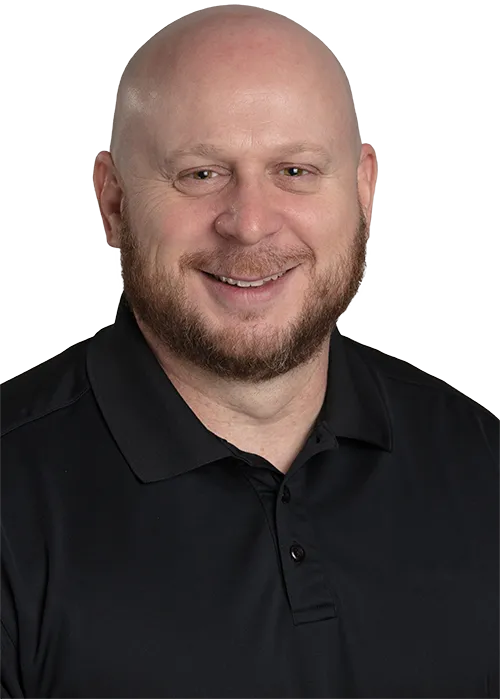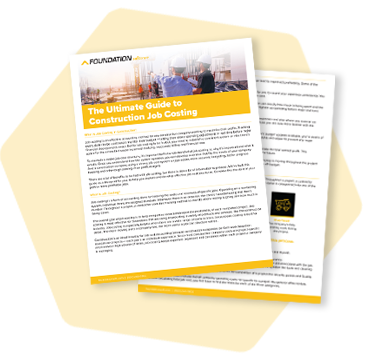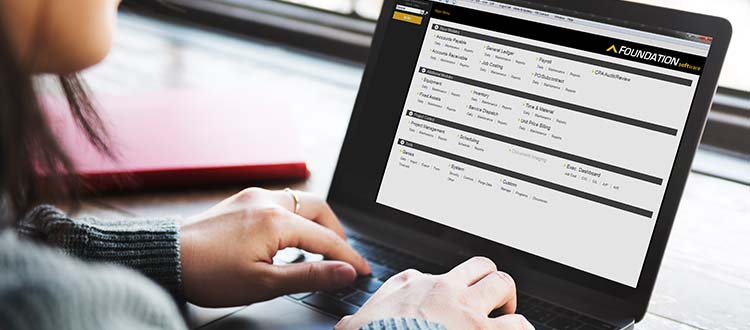
As most contractors will tell you, in order to build something that will last, you have to take your time with the details. Implementing FOUNDATION is no different. We’re invested in your success, and we’ve found that the more attention we give together to your building a database and learning the system, the more likely you’ll enjoy that success for years to come.
We want to make sure your system is set up with your preferences and your business needs in mind. So we’ve designed our training program to allow you to customize the building blocks of your system over 8-16 weeks, with a dedicated trainer to guide you through the whole process.
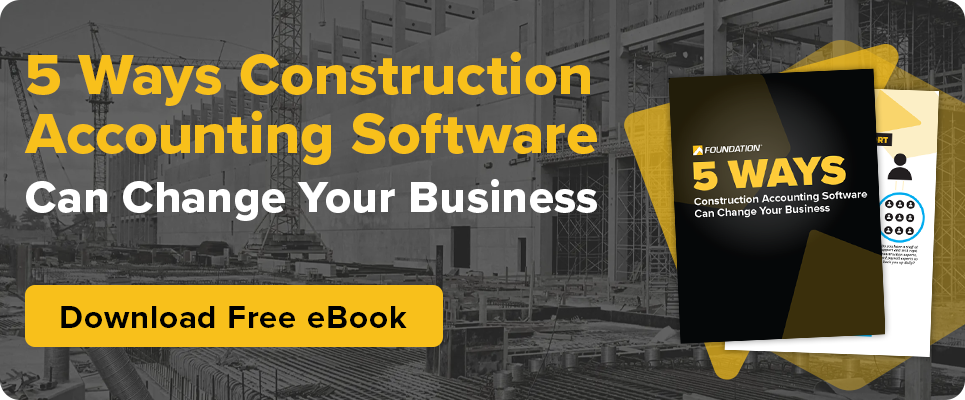
Phase 1: Planning
Following installation, we schedule a planning session for you to meet your trainer and for your trainer to meet your business. Your trainer will also take you through an overview of FOUNDATION’s structure and the learning process. To help you set up the options that work best for you, the first phase will focus on:
- Understanding how your company operates and what it needs
- Defining each user’s role in the software
- What to expect from the implementation process
Phase 2: Maintenance Items & the Accounting / Project Management Framework
Next, your trainer will help you set up the maintenance items that form the basis for your future transactions and help you route those transactions to your G/L so you can see how you will be able to view your data.
Your maintenance items are essentially the building blocks of FOUNDATION. Setting them up is one of the most important components of your new system. The basic process looks like this:
| 1. Build Maintenance Items | 2. Create Daily Transactions | 3. View Information |
|---|---|---|
|
|
|
Items that your trainer will work with you on include:
| General Ledger | Building G/L accounts and showing you how they affect your job costing |
| Job Costing | Defining a job cost structure, helping you understand options for measuring costs and organizing data |
| Payroll | Defining your employees; determining taxes, burdens, deductions, prevailing wage and fringes; and deciding which reports you need |
| Accounts Payable | Defining vendors, invoice terms, sales taxes and 1099 fields |
| Accounts Receivable | Defining customers, invoice terms and income types and determining billing formats, such as AIAs, time and material, service, and unit price |
| Project Control | Creating custom document templates for RFIs, submittals, change orders and more; customizing categories for document image lookup; and creating correspondence categories and contacts |
| Additional Modules | Setting up equipment and inventory items; customizing dispatch boards; and prioritizing your setup and training based on features important to your business |
Phase 3: Practicing Daily Transactions
You’ll learn the daily functions of the software and have guided experience in a practice database, including:
- the process and flow of entering timecards, invoices, billings, change orders and project documents
- receiving and making payments
- and other daily items you’ll need to run your business
Practicing these functions — especially on your own — will help to make your transition easier by increasing your familiarity with the system. It will also allow you and your trainer to test your system setup, view reports and see your database in action.
Phase 4: Going Live
By this point, you’ll be ready and feeling confident to take your system “live.” In FOUNDATION, “going live” is divided into two parts:
| 1. Using FOUNDATION for your real transactions | Your trainer will help you post your first payroll and enter billings and invoices as of your “live” date. Once something is posted to the G/L on or after your live date, you’re live! |
| 2. Tying out your history | Your trainer will help you tie out your old accounting system into FOUNDATION and create a smooth and accurate transition for every module. |
Phase 5: Settling in & Review
Once you’re live in FOUNDATION your trainer’s final task is to help you settle into the day-to-day and ensure you understand the system. During this phase, training time is mostly self-guided. You’ll be encouraged to ask questions about anything that arose since going live. We’ll also discuss ideas and processes that may make the software easier to use.
You’ll also learn more about reporting structures and reconciling accounts, as well as covering issues that may have been missed or need to be reviewed.
Finally, the Wrap-up Meeting
The last session will be similar to your planning meeting — we want to check in! Recognizing that your business is unique, we’ll do a final review of your setup and your experience to make extra sure we’ve set you on the best path to success as you define it.
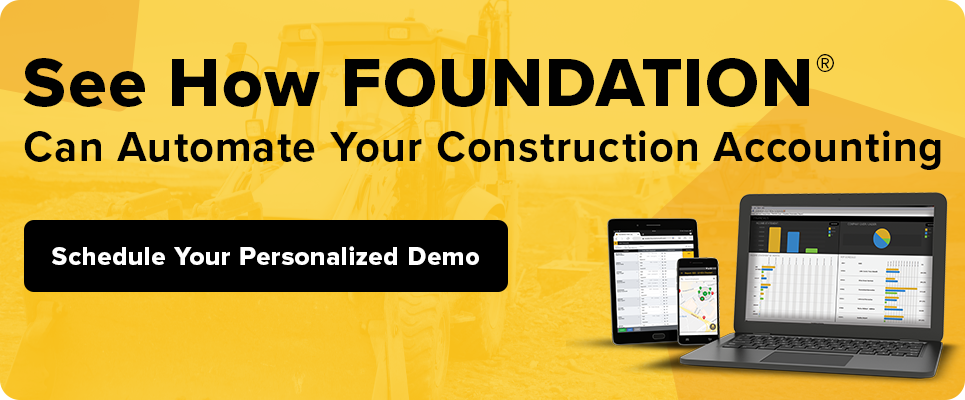
We’ll also get you ready to begin using our support department, which will be ready to help you troubleshoot your transactions, maintenance and reports and continue to build up your understanding of the system as needed. Once you graduate from training, you’ll always have us just a phone call away!
Share Article
Keep on current news in the construction industry. Subscribe to free eNews!
Our Top 3 YouTube Videos
Learn about our software more in depth with product overviews, demos, and much more!
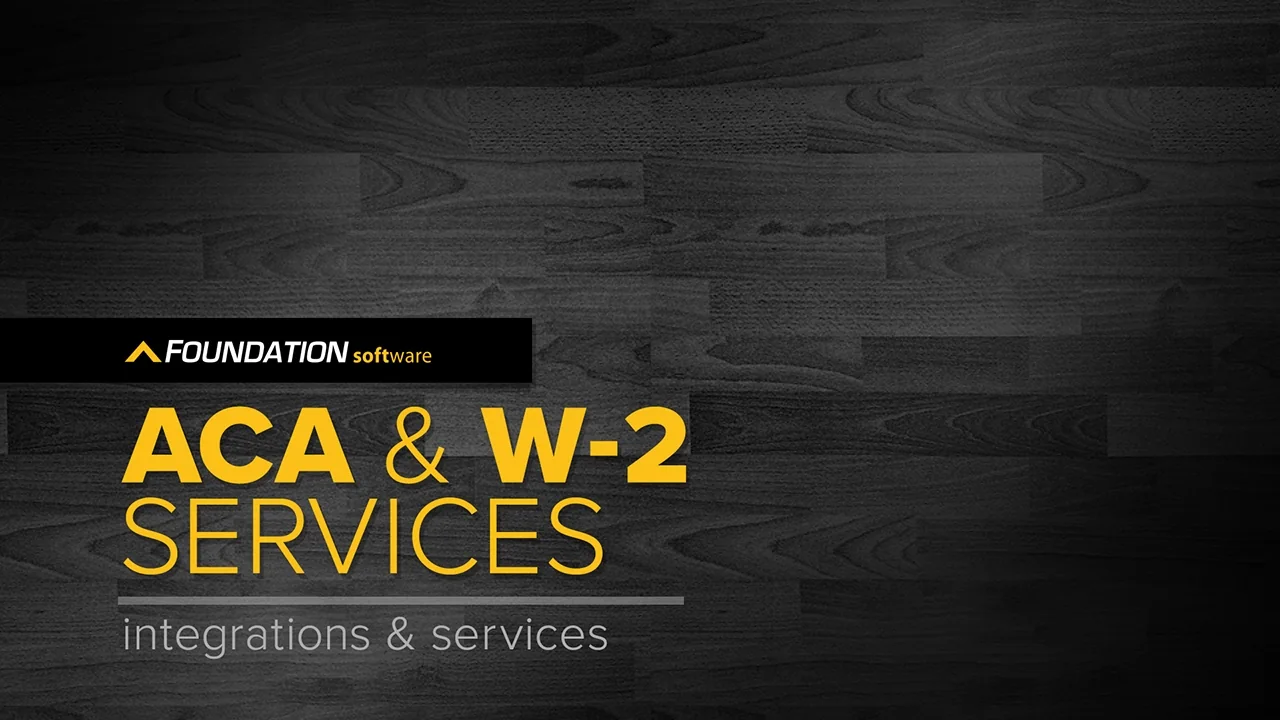
Our ACA reporting & e-filing services include official 1094-C and 1095-C IRS reporting, optional e-filing (no applying for a TCC code required), mailing to your employees and experienced support to help you.
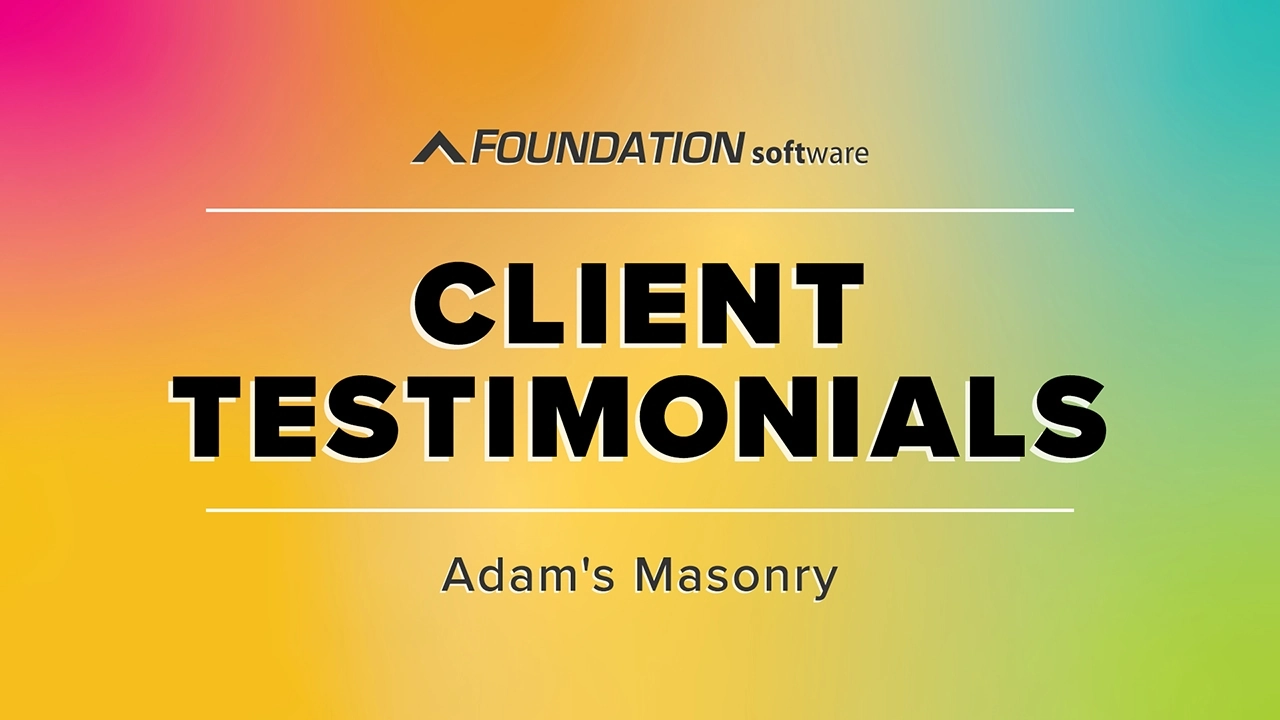
There are plenty of reasons to make FOUNDATION your choice for job cost accounting and construction management software — just ask our clients!
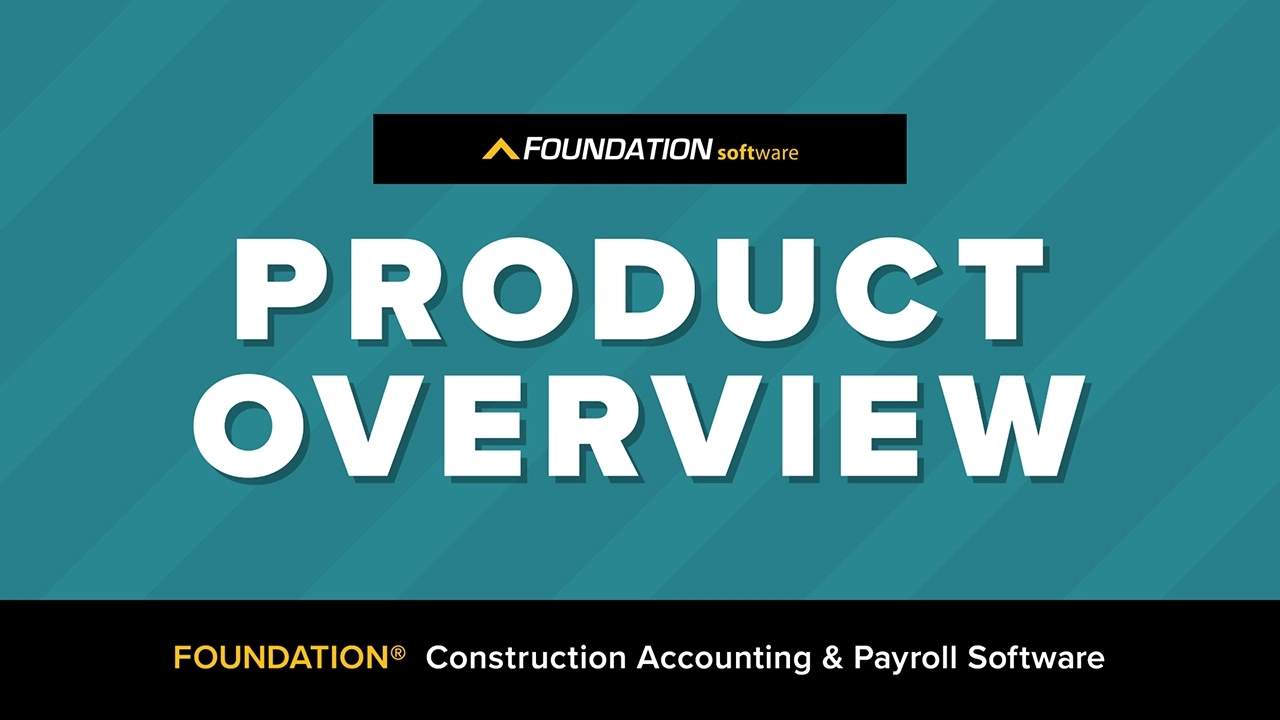
From job cost accounting software, to construction-specific payroll. Get an overview on your next all-in-one back-office solution.
